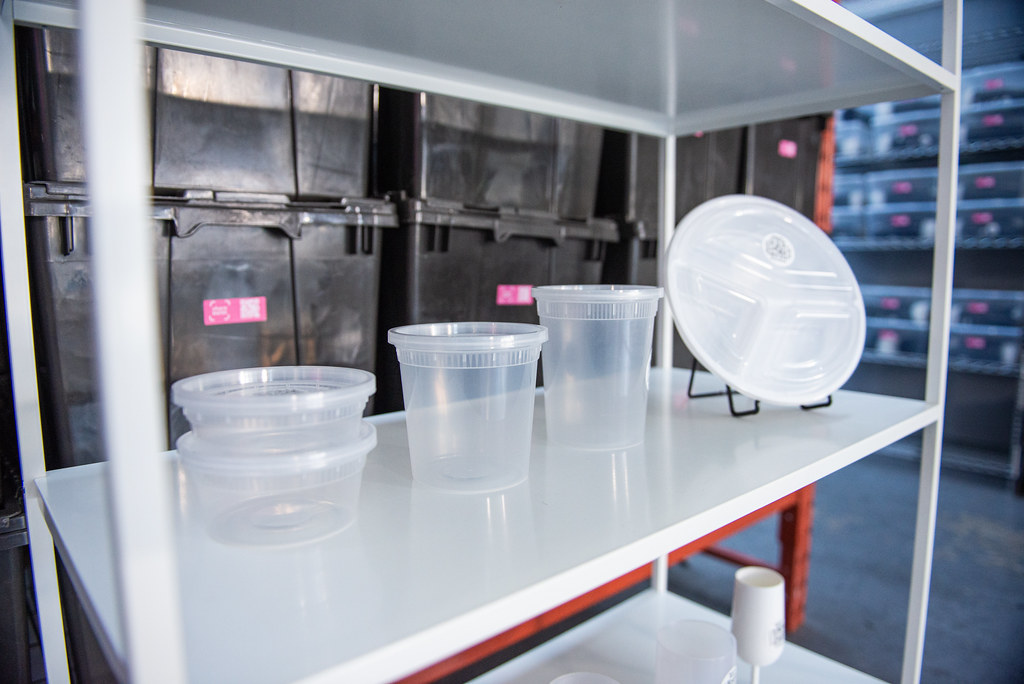
The bans on single-use items in British Columbia come as the Canadian federal government is pushing to enact similar legislation countrywide. | Courtesy of Ministry of Environment and Climate Change Strategy
The British Columbia government will institute bans and other restrictions on single-use bags and food service items. A food retailers group says it’s the first province to implement such a regulation.
British Columbia’s Ministry of Environment and Climate Change Strategy on July 14 published the regulations, which will go into effect in December. A press release notes that various local governments have already enacted their own single-use plastics restrictions, and the Canadian federal government is soon implementing its own bans.
“Focusing on hard-to-recycle single-use and plastic items will help move B.C. to a circular economy where waste and pollution are eliminated, products and materials are kept in the economy through re-use, and natural systems are regenerated,” George Heyman, Minister of Environment and Climate Change Strategy, stated in the release.
The Single-Use and Plastic Waste Prevention Regulation does the following:
Ban oxo-degradables: These plastics contain an additive that leads to decomposition or fragmentation of the plastics into smaller pieces. The regulations ban them for single-use plastic products or packaging.
Regulate bags: The regulations ban single-use plastic bags and require a 25-cent charge for paper bags, which must contain at least 40% recycled fiber, and a $2 charge for reusable bags, which must be capable of being used and washed at least 100 times. Restaurants are allowed to provide the paper bags free of charge, however.
Food service ware prohibited: B.C. will prohibit food businesses from providing food service ware (bowls, boxes or cartons, cups, hinged or lidded containers, plates, platters, trays and film wraps) if it’s made of any of the following materials: biodegradable plastic, compostable plastic, polystyrene (PS) foam, polyvinyl chloride (PVC) or polyvinylidene chloride. An exception is made for the above items if they are made of paper or other plant fibers but have a compostable plastic lining. Also, businesses may use foam PS trays to hold raw meat, poultry and fish until July 1, 2030, at which point those trays will be banned.
Food service accessories: The regulations limit the distribution of food service accessories, defined as beverage cup lids and sleeves, condiments, straws, garnishes, napkins, utensils and wet wipes. Essentially, these items can’t be automatically handed to a customer. But they’re OK to provide if a customer specifically asks for them, if a customer is offered them and agrees, or if the items are provided in a self-service manner. That being said, plastic utensils are flat-out banned. There are other exceptions for plastic cup lids: Lids can be provided if they’re for a drink that’s being delivered or handed to a customer in the drive-through.
The Retail Council of Canada, which commented and pushed back on some of the requirements, said B.C. is the first province in the country to pursue such regulations on single-use plastics.
Overlapping pushes in Canada
The Ministry of Environment and Climate Change Strategy press release noted that 21 municipalities in the province have already established local laws limiting single-use plastics.
And in neighboring Alberta, the mountain resort town of Banff will begin to impose its own single-use plastic regulations in stages, with the first stage going into effect July 1, 2023.
In some ways, the provincial regulations overlap with federal restrictions that are already coming down the pike. Federal law bans the sale of plastic checkout bags, drinking straws, cutlery, stir sticks, ring carriers and food service ware made from plastic starting Dec. 20, 2023.
“B.C.’s regulation improves on these measures to limit the use of many single-use items, promote reusables and eliminate the use of additional items,” according to the release. “Over their life cycle, reusable products generally produce fewer emissions, consume less water, and decrease waste, litter and pollution compared to disposable alternatives.”
More stories about Canada
- Canadian waste services must report plastic quantity
- Proposed EPR changes in Canada could inform US plans
- First phase of packaging EPR launches in Alberta